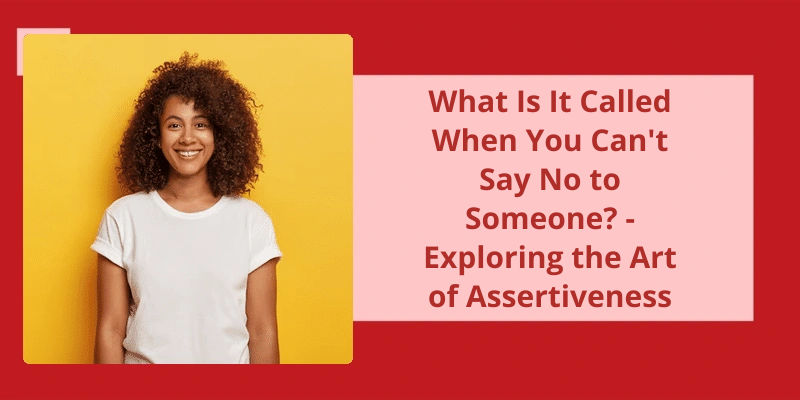There’s a realization that many people share, one that stems from the understanding that saying "no" can be difficult. For some individuals, however, this becomes much more than just an occasional challenge; it becomes a defining aspect of their character. They’re the acquiescent, the ones who’re always ready to accept something without protest, to do what someone else wants, no matter the costs. This can stem from a variety of factors, including a desire to please, a fear of confrontation, or a lack of confidence in one's own decisions. Regardless of the reasons, the acquiescent often find themselves in situations where they feel powerless, unable to assert their true desires, and unable to find a way out of the cycle of agreement. It’s a unique and complex condition, one that deserves understanding, compassion, and perhaps most importantly, a path towards empowerment.
What Does Inability to Say No Mean?
The inability to say no can be a concerning and challenging issue for many individuals. It can lead to a lack of personal boundaries and an unhealthy imbalance in relationships, where one person consistently sacrifices their own needs and desires for the sake of others. This can lead to feelings of resentment, burnout, and even mental health issues such as anxiety and depression.
To overcome this issue, it’s important to develop a strong sense of self-worth and confidence in ones own abilities and priorities. This can involve setting clear boundaries around ones time and energy, prioritizing self-care and personal goals, and learning to communicate assertively and effectively. It may also involve seeking professional support, such as counseling or coaching, to address underlying fears or anxieties that may be contributing to the inability to say no.
Communication is key in any healthy relationship, and when someone refuses to talk to you, it can leave you feeling confused and frustrated. It’s important to understand the reasons behind their behavior, and if it’s a tactic to manipulate or control you, it may be time to reevaluate the relationship. However, if there’s a legitimate reason for their silence, it’s important to respect their boundaries and communicate in a way that meets both of your needs.
What Does It Mean When Someone Refuses to Talk to You?
When someone refuses to talk to you, it can leave you feeling confused, hurt, and helpless. It’s important to remember that communication is a two-way street, and both parties need to be willing to engage in order for any relationship to thrive. Refusing to talk can be a passive-aggressive way of asserting power or control over the other person, and can create a toxic dynamic that erodes trust and intimacy over time.
If someone is refusing to talk to you, it may be tempting to try to force the issue and demand an explanation. However, this is likely to backfire and further escalate the situation. Instead, it’s better to calmly and respectfully express your own feelings and needs, and let the other person know that youre open to dialogue when theyre ready. If they still refuse to engage with you, it may be necessary to consider ending the relationship altogether, especially if their behavior is causing you significant emotional distress.
Dont allow another persons silence to erode your self-worth or sense of agency. Instead, focus on finding meaningful connections with people who prioritize open and honest communication, and who value your presence in their life.
Conclusion
In our society, there are individuals who possess a unique trait of being unable to say no to other people. This psychological phenomenon is commonly known as acquiescence or being acquiescent. When we take the time to examine the impact of acquiescence on an individual's mental and emotional well-being, we can easily see that it isn’t a benign state, but rather an unhealthy pattern of behavior. Ultimately, being acquiescent can be detrimental, as it can lead to the compromising of one's values, needs, and desires, and can have negative impacts on one's physical health as well. Therefore, it’s vital to recognize this tendency and seek help when necessary in order to lead a healthy, fulfilling life.






